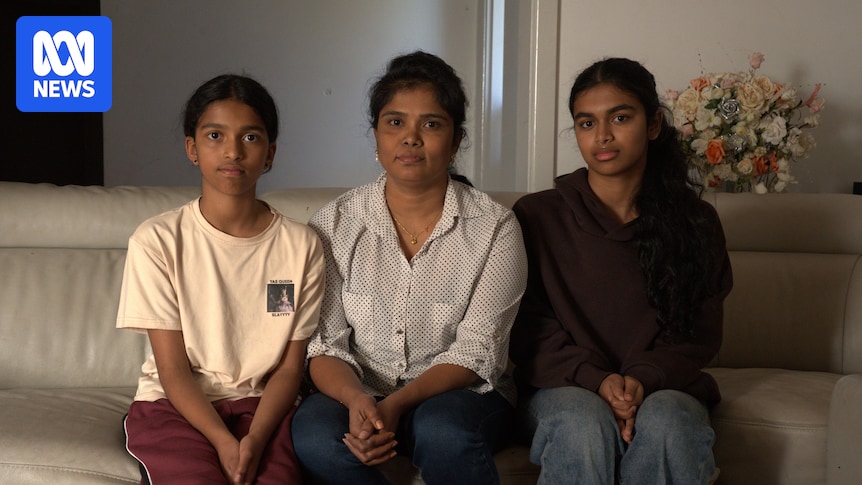
Rathy Barthlote and her family find themselves in a precarious situation. While her 11-year-old daughter Lolitta, born in Australia, gained citizenship at the age of 10, Rathy, her husband, and their 16-year-old daughter Logitha remain asylum seekers with limited rights. Having lived in Australia since 2014, their refugee claims are still pending.
“Their friendships, schooling, and sense of belonging are all here,” Ms. Barthlote explained. “One child has everything, the other child is worried about her future.”
The family fears deportation daily. “My older daughter has occasionally asked whether she would be separated from her younger sibling,” Ms. Barthlote said. “For years and years, we are in limbo, building lives on unstable ground.”
Background of the Bridging Visa Dilemma
The Barthlote family arrived in Australia by boat in 2013, shortly before the Abbott government introduced the ‘Fast Track’ system to process boat arrivals’ claims. This system, criticized for limiting procedural rights, was abolished by the Labor government, yet many issues remain unresolved.
Ms. Barthlote is among approximately 8,000 asylum seekers whose claims were rejected by this system. Many are appealing, arguing the process was unjust. Most live on bridging visas, with varying rights.
Calls for Resolution
Former Coalition immigration minister Alex Hawke has called on the government to address these unresolved statuses. “People have been here a long time. And the reality of their condition is that they will be staying here,” Mr. Hawke stated. “We now have to deal with the actual reality of the situation.”
Although the previous government did not resolve the issue, Mr. Hawke now supports action. “It’s time the Labor Party committed to resolving the issues. Some of those are tricky, but a lot of them are now no longer tricky,” he said.
Contrasting Outcomes for Asylum Seekers
Priya Nadesalingam, a Tamil asylum seeker whose case gained significant public attention, shares a similar journey with Ms. Barthlote. Both fled Sri Lanka’s civil conflict, arriving in Australia on the same boat in 2013. While the Nadesalingams were eventually granted permanent residency after a prolonged campaign, Ms. Barthlote and many others remain in uncertainty.
Ms. Barthlote’s case has been in the system for over a decade. After her initial refugee claim was rejected, she appealed and won, only for the case to be reassessed and rejected again. Her subsequent appeal has been pending since mid-2019.
Life in Limbo
In Melbourne’s western suburbs, the Barthlote family has built a life despite the uncertainty. Ms. Barthlote works in aged and disability care and part-time at a union, while her husband holds two jobs. Their daughter Logitha, aspiring to study forensic science, faces financial hurdles if her visa status does not change.
“She wants to have a dream but she can’t get that dream,” Ms. Barthlote lamented. As a bridging visa holder, Logitha would need to enroll as a foreign student, ineligible for student loans.
The Path Forward
Since taking office in 2022, the Labor government has begun resolving the status of around 20,000 people recognized as refugees but still on temporary protection visas. However, the fate of the remaining 8,000 asylum seekers, like Ms. Barthlote, remains uncertain.
Sanmati Verma, legal director at the Human Rights Law Centre, criticized the current system as “cruel,” highlighting the lack of transparency in granting permanent visas. “There is no clear rationale or consistency as to who is afforded this treatment and who is not,” she said, urging the government to recognize these individuals as part of the community.
“[The government should] recognize that people who have been here for a decade or more are now part of our community, and grant them permanent visas to reflect that reality,” Ms. Verma stated.
The Home Affairs Department, however, maintains that those whose claims were rejected must depart Australia unless new, credible protection claims arise.
For Ms. Barthlote and her family, securing a future in Australia is paramount. “We are part and parcel of this community. We have no home to return to in Sri Lanka,” she said, encapsulating the plight of thousands still navigating the complexities of Australia’s immigration system.







